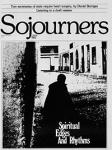The esthetics are delicate.
Even Rembrandt failed to resolve them;
his painting 'The Flayed Steer' reeks of death.
When they opened the breast of the man of state,
he lay there like a flayed steer.
You could imagine him all but hung on hooks.
In Chile they flayed, hung men and women on hooks.
The esthetics are delicate. Shed blood stinks, hooks
displaying human meat
stand outside all known schools of art.
No man of state has seen his own heart.
We infer the organ, though steely eyes and merciless words
weaken the argument.
They opened the breast of the man of state.
Alarmingly his blood ran, like any steer's.
Blood, more blood! the medicos cried.
Lucky man, there were bottles of blood, jugs of blood
casks of blood, O there were torrents of blood,
the seven seas ensanguined, a high tide whelmed the room!
The children of Chile entered like acolytes all in white,
the ghostly children, each with a golden bowl,
like quattrocento angels they cried sweetly in chorus;
Sir, take our blood! it is given for you!
Next women and men, hung like red scarves on hooks,
descended cloudlike
(for whose death the man of state, lying rent and lax,
could scarce be held accountable, so wan he lies)
Sir, take our blood! cry the white robed martyrs
each holding in hand a golden bowl.
Drink to our friendship!
Happy outcome! The man of state sits up
he assumes once more the orb and sceptre.
The ghosts recede.
The murdered children follow the moon into a dark grove.
The white robed women and men ascend in mid air,
they kiss with bloodless lips the instruments of life.
II.
The man of state reclines in state.
Today he claims another kingdom,
the kingdom of death.
Meantime. He hovers in meantime.
His body hums and blinks like a war room.
His body is a cosmic body, a mystical body,
the body of the land he rules, and beyond;
a very relief map of power.
Hinged right and left like the hinged doors of an effigy,
he lies there, awesome, an ikon.
A figure looms above; Blake's angel. Clothed with cloud,
his countenance is like the sun; his feet, pillars of fire,
rest mightily on land and sea.
The archangel lifts his hands, shouts to the four winds.
The liturgy commences. The hinged form of the man of state
parts, a splendid iconastasis.
Behold, rivers and tributaries flow from him. He dreams.
His dream, seemly, majestic, a high road,
an imperial beckoning.
Until
presently, something--
All is not well! cries the angel.
A panic of skilled hands! In the arterial chambers
of the man of state
blood turns to sludge.
Distempered blood, starved blood, diseased blood.
Bloods of favellas, blood of the rack, blood of the dole.
The vital signs of the man of state wane.
The royal road is daubed with death's graffiti;
No Exit. Dead End.
III.
They probed the great man's heart. At first, next to nothing.
An encysted cell. Under powerful magnification--
a tiny easter egg, fit for a Czar. Inside,
as though incised on the facet of an insect eye;
a miniscule portrait of the man of power; entitled,
Myself, By Myself, To Myself.
They sought the heart of the man of state. Found a dark oval,
a mirror. Lifted out, exposed to light, it reflected--nothing.
Probed, left side of breast. Found; an arrow of bone,
pointing right. Incision on right side; similar arrow
pointing left. Placed point to point, the arrows flew
each against each, like two beaks seeking blood.
Sought a heart. Disclosed, a black box of metallic substance,
a one inch cube. No blood adhered,
no membrane attached. Thin as a drumhead. And hollow.
Sought heart. A brain form; convolutions, agate hard.
Pulsations, buzzing, a hornet's anger.
Probed. Findings can only be deduced, no one surviving.
Tentative deduction; Explosive device
tripped by surgical instrument.
IV. (A press conference, following surgery.)
A Jewish heart.
Shape; a tear vial.
Pathology; choked with sands of Sinai.
*
A Catholic heart.
Shape; a round brown loaf.
Pathology; petrified.
Daniel Berrigan was a Sojourners contributing editor and a poet, priest, and peace activist when this poem appeared.

Got something to say about what you're reading? We value your feedback!